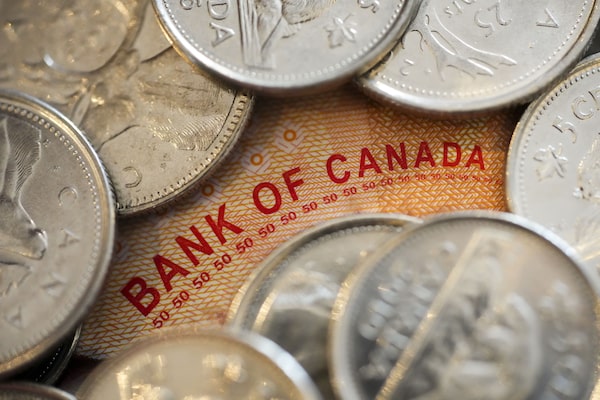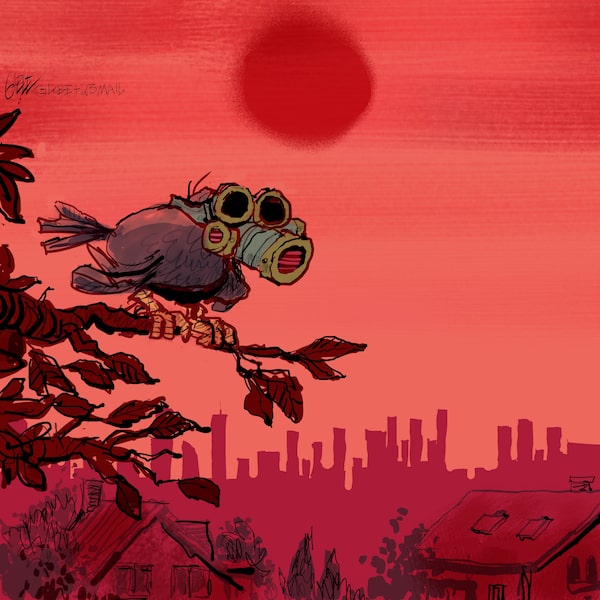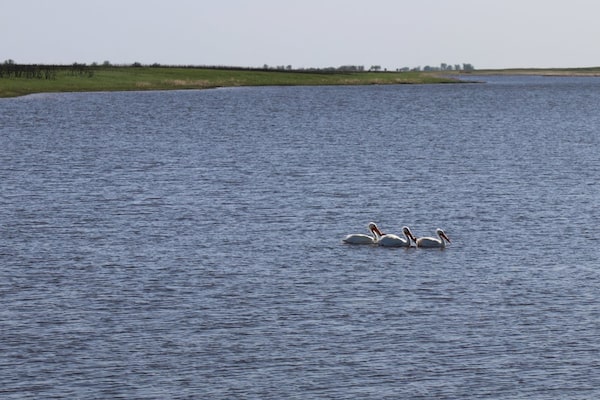Good morning,
In response to stubborn inflation and a surprisingly strong Canadian economy, the Bank of Canada raised its benchmark interest rate by a quarter percentage point yesterday.
The rate is now at 4.75 per cent, the highest level since 2001, and will push up Canadian mortgage rates and further squeeze household budgets.
The Bank of Canada was forced to make a U-turn after Governor Tiff Macklem announced a “conditional pause” to interest-rate increases earlier this year when the central bank believed that borrowing costs were high enough to cool the economy and bring down inflation.
- Higher interest rates are coming for variable- and fixed-rate mortgage borrowers
- David Parkinson: The Bank of Canada rediscovers good old-fashioned ‘excess demand’
- Opinion: On fighting inflation, central banks are getting way too confident

A Canadian $50 bill is pictured in Ottawa on Wednesday, Jan. 11, 2023.Sean Kilpatrick/The Canadian Press
This is the daily Morning Update newsletter. If you’re reading this on the web, or it was forwarded to you from someone else, you can sign up for Morning Update and more than 20 other Globe newsletters on our newsletter signup page.
Smoke from wildfires burning in Quebec blanket Ontario, northeastern U.S.
Smoke from wildfires raging in Quebec and other provinces covered the skies over large parts of Ontario and the northeastern U.S., making the air quality in those areas among the worst in the world.
The scent of campfire hung in the air and a grey blanket of smoke was visible in the Greater Toronto Area and the Ottawa region. Meanwhile, in New York, an orange haze blotted out the sun.
The number of fires and the vast swath that has been torched has already reached a record high in Canada, with the hottest months of the year still to come. More than half of the 414 fires burning from coast to coast are determined to be out of control, displacing 20,183 people from their homes, Emergency Preparedness Minister Bill Blair said.
Kyiv fails to renew media credentials of Globe’s war photographer in Ukraine
The Ukrainian government has failed to renew the media accreditation for a photojournalist who has worked with The Globe and Mail since 2014. The country’s security services are demanding that Anton Skyba commit to a lie-detector test, accusing him of holding a Russian passport and questioning whether his work is aligned with the country’s “national interests.”
Journalists have entered Ukraine by the thousands since the Russian invasion last year, covering the war from the front lines, hospital wards and devastated neighbourhoods. But as the war has continued, the country has taken a more hard-line approach to journalists, revoking credentials for some Western reporters and forbidding journalists from reporting numerous aspects of the war.
- Ukrainian President Zelensky visits area flooded by destroyed Nova Kakhovka dam
- Thousands displaced in Kherson after Nova Kakhovka dam bursts and Ukrainians, Russians blame each other
- Opinion: If Russia takes up scorched-earth tactics, it would only strengthen the will of its foes
Got a news tip that you’d like us to look into? E-mail us at tips@globeandmail.com Need to share documents securely? Reach out via SecureDrop
Also on our radar
Majority want foreign interference public inquiry: A majority of Canadians want the federal government to call a public inquiry into alleged Chinese interference in this country’s elections and support criminal charges and jail time as the most appropriate punishment for anyone found guilty of foreign interference.
Irving Oil may put itself up for sale: The owner of Canada’s largest refinery may put itself up for sale after conducting a strategic review. Irving Oil, the 99-year-old family controlled company that dominates the fuel business in the Atlantic provinces, said yesterday it is studying a number of options for the future of the company, which operates in Atlantic Canada, the United States and Europe.
Millions take China’s gruelling college-entrance exams: Nearly 13 million students in China are taking the gaokao, the notoriously difficult college entrance exam, setting a record for the most students to take the test in one year. The exams are taking place even as millions of graduates are struggling to find jobs in an increasingly dire employment market.
McIlroy resigned to Saudi money in golf: Golf champion Rory McIlroy said the deal between the PGA Tour and LIV Golf is a sad but inevitable reality as global sports organizations are finding it too hard to resist Saudi Arabia’s money. But he said he hopes that the merger will allow the PGA Tour to control how that money is spent.
- Cathal Kelly: Reaction against LIV, PGA Tour merger suggests principle can be found elsewhere in sport. It can’t
Morning markets
Rate worries weigh on markets: Borrowing costs in government bond markets rose and share markets stalled on Thursday after a surprise interest rate hike in Canada gave investors their second reminder of the week that the surge in global interest rates isn’t done yet. Around 5:30 a.m. ET, Britain’s FTSE 100 was down 0.25 per cent. Germany’s DAX and France’s CAC 40 edged up 0.16 per cent and 0.24 per cent, respectively. In Asia, Japan’s Nikkei ended down 0.85 per cent. Hong Kong’s Hang Seng advanced 0.25 per cent. New York futures were mixed. The Canadian dollar was higher at 74.94 US cents.
What everyone’s talking about
Editorial: “International students can contribute much to Canada, and we to them, as long as it is at levels at which they can be properly supported. For critical sectors that badly need workers, such as health care and construction, we should look to permanent streams that don’t tie workers to their employers.”
Today’s editorial cartoon

Editorial cartoon by Brian Gable, June 8, 2023.Illustration by Brian Gable
Living better
Where should graduates invest new income? Here are some things to consider
As graduates leave university and begin their careers, they’ll be earning more income than they ever have. The question now is where should they invest their savings – an RRSP, TFSA or something else? Tax columnist Tim Cestnick shares his thinking.
Moment in time: June 8, 1887

Last Mountain Lake National Wildlife AreaTourism Saskatchewan/Saskatchewanderer/Supplied
First migratory bird conservation area in Canada
In the mid-1880s, the Qu’Appelle, Long Lake, and Saskatchewan Railroad and Steamboat Co. began building a rail line north from Regina to Prince Albert in present-day Saskatchewan. The proposed route would have taken the railway by a prime waterfowl nesting area on Last Mountain Lake, about 100 kilometres northwest of Regina. Worried that incoming settlement would disturb the breeding grounds, Edgar Dewdney, lieutenant-governor for the North-West Territories, called on the Conservative government of John A. Macdonald to create a sanctuary there. The islands at the north end of the lake “are the favourite breeding grounds for almost all the different varieties of waterfowl … in the North-West from pelican to snipe,” Mr. Dewdney informed the minister of the interior in March, 1887. “The shores … are literally covered with eggs.” Ottawa immediately acted on the recommendation, and on this day in 1887, set aside 2,500 acres for the Last Mountain Lake Bird Sanctuary. It was the first sanctuary of its kind in North America – which the federal government immediately forgot about. During the deliberations for the 1917 North American Migratory Birds Convention, Canadian officials didn’t even know that the Last Mountain Lake sanctuary existed. Bill Waiser
Read today's horoscopes. Enjoy today's puzzles.
If you’d like to receive this newsletter by e-mail every weekday morning, go here to sign up. If you have any feedback, send us a note.